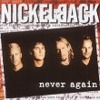On my first visit to Liverpool, my friends and I espied The Beatles Story on Albert Dock, and began the questioning: Where's the Echo and the Bunnymen Story? Where's the Lightning Seeds Story? Where's the Orchestral Maneuvers in the Dark Story? Where's the Frankie Goes to Hollywood Story? Ha ha ha. But the questions are valid.
In Liverpool: Wondrous Place, Music from Cavern to Cream, Mojo founder Paul Du Noyer answers these questions. A love letter to his hometown, Wondrous Place _captures the excitement and aching beauty of Mersey music, chronicling the city’s brief rise in stature on the backs of the Beatles to those who fought for recognition and credibility in their wake. From the dank of the Cavern to the cool of Eric’s and Cream, Wondrous Place delineates Liverpool’s movers, shakers, and hitmakers through a haze of unemployment, football, and history.
The story of Liverpool entertainment is the story of Liverpool itself. Liverpudlians are a party people, as Du Noyer argues, because they have fuck all else but their wit and charm. As John Lennon put it, "People have a sense of humour because they are in so much pain, so they are always cracking jokes." Only such a gritty place could make such beautiful pearls, and Liverpool has produced many: more number one hits than Detroit, a city it has much in common with. As OMD’s Andy McCluskey says, _"Imagine it. More Number Ones than Motown!" _
Unlike Detroit, however, Liverpool has more than just Motown soul and garage to contribute to rock’s canon. With such diverse genius as the Beatles and the other Merseybeat bands, Deaf School, Big in Japan, the Crucial Three collective, the Lightning Seeds, Frankie Goes to Hollywood, Dead or Alive, OMD, the Teardrop Explodes, Echo and the Bunnymen, the KLF, Elvis Costello, the La’s, Cast, Space, Half Man Half Biscuit, John Peel and even Atomic Kitten, Liverpool deserves more that the scorn of a nation -- it deserves their Ta very much, la'.
Liverpudlians have it rough, what with the city’s economic collapse and the nasty Scally stereotypes heaped on them from the rest of the country, the snide "provincial" dismissals and the continuing reputation purported by the press that it is a self-pitying, skeezy hole. Du Noyer’s book finally gives them all the recognition and accolades they so richly deserve.





















